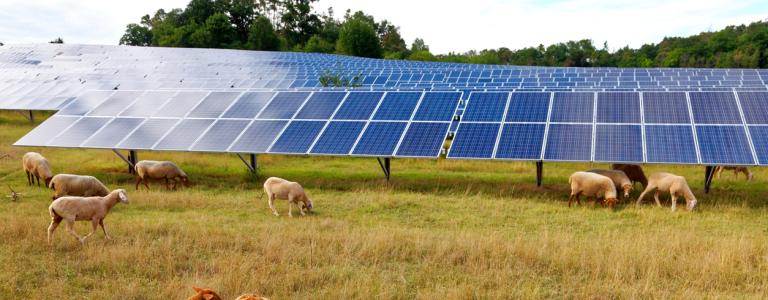IISD's Best of 2024: Publications
As 2024 draws to a close, we revisit our most downloaded IISD publications of the year.
1. State of Global Environmental Governance
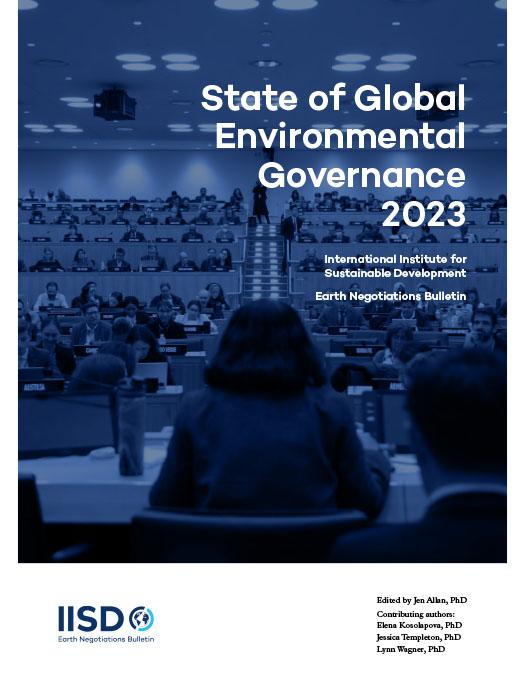
The year saw the last of the COVID pandemic-delayed milestones completed. Countries adopted major decisions to improve global chemicals management and protect marine life in international waters. But most of the year was about making all these rules work. Join the globetrotting Earth Negotiations Bulletin team as they review 2023's sustainable development negotiations, draw links between the talks, and look down the road to what the coming months hold for environmental multilateralism.
2. Transitioning Away From Oil and Gas
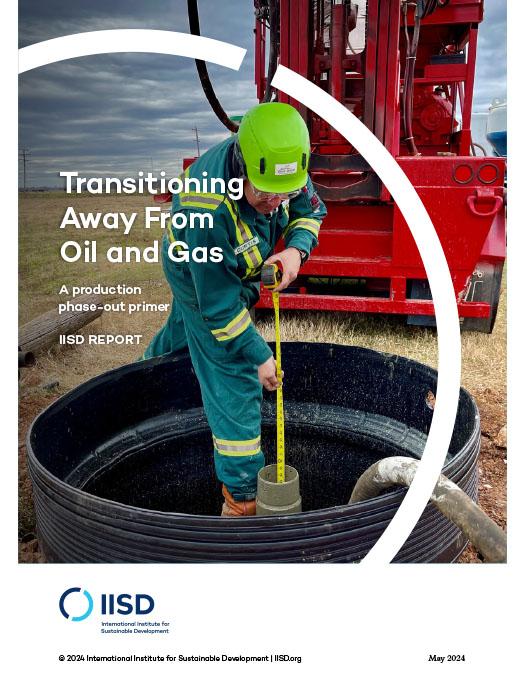
At the COP 28 climate summit in Dubai, 198 governments agreed to transition away from fossil fuels. That means phasing out oil and gas, as well as coal. Yet most oil and gas producers plan to drill more, not less. Some countries are dependent on revenues from oil and gas, or politically entangled with the industry. An unmanaged transition could get ugly. So how do we deliver a fast, fair, and orderly phase-out?
3. Global Market Report: Tea prices and sustainability
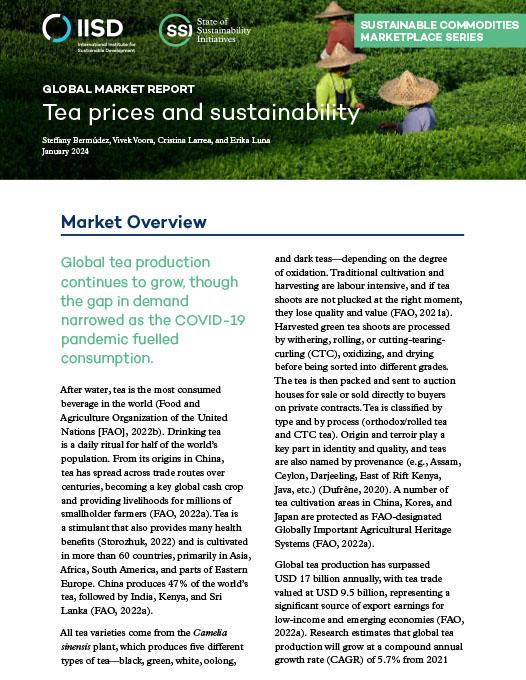
After water, tea is the most consumed beverage in the world. Drinking tea is a daily ritual for half of the world’s population. From its origins in China, tea has spread across trade routes over centuries, becoming a key global cash crop and providing livelihoods for millions of smallholder farmers This report explores recent market trends in the tea sector and explains why sustainability standards and other value chain actors need to get better at recognizing the social and environmental costs of tea production.
4. Mapping India's Energy Policy 2023
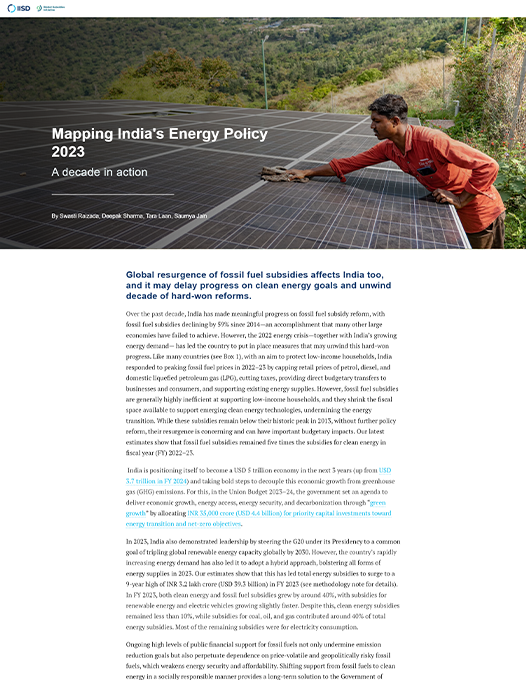
Global resurgence of fossil fuel subsidies affects India too, and it may delay progress on clean energy goals and unwind decade of hard-won reforms. Over the past decade, India has made meaningful progress on fossil fuel subsidy reform, with fossil fuel subsidies declining by 59% since 2014—an accomplishment that many other large economies have failed to achieve. How has government support for energy in India evolved over the last decade? As India strives to become a USD 5 trillion economy over the next 3 years, what will its energy mix be? Is government support and taxation aligned with its long-term net-zero commitment?
5. Out With the Old, Slow With the New
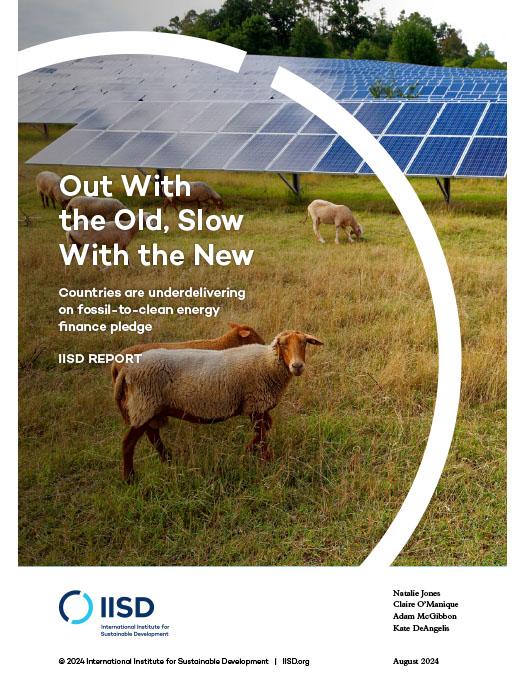
At the United Nations Climate Change Conference (COP) in November 2021, 39 countries and public finance institutions signed the Clean Energy Transition Partnership (CETP), a joint commitment to end international public finance for fossil fuels by the end of 2022 and prioritize international public finance for clean energy. This report analyzes CETP signatories' finance for fossil fuels and clean energy, a year after the implementation deadline.
6. Global Market Report: Soybean prices and sustainability

Known as the “king of beans,” soybeans account for a large portion of direct and indirect protein consumed around the world. Since the 1950s, soy production has increased 15-fold and shifted from Asia to the United States, Brazil, and Argentina, which now account for 80% of global soybean production. Less than 3% of soybeans are produced in compliance with sustainability standards. This report unpacks what needs to change to make soybeans a food that protects rather than harms the natural environment.
7. Decarbonization of the Mining Sector
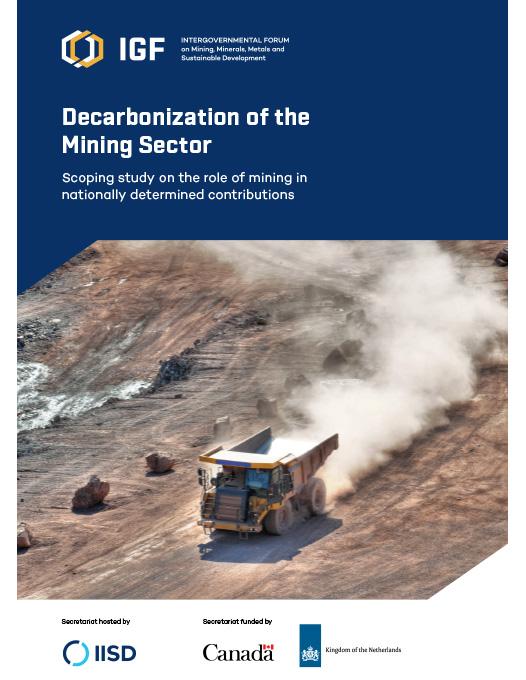
The urgency to decarbonize our societies to limit global GHG emissions is driven by global climate goals and commitments under the Paris Agreement. The mining sector's energy-intensive nature makes it a significant source of GHG emissions, necessitating strategic management to reduce its own GHG emissions and prevent exacerbating other major planetary crises, such as pollution and biodiversity loss. Recognizing the urgent need to decarbonize to address climate change, this scoping study provides an in-depth analysis of the mining industry's current status, challenges, and opportunities in participating in the global effort to curb greenhouse gas (GHG) emissions.
8. Monitoring Progress in Green Public Procurement
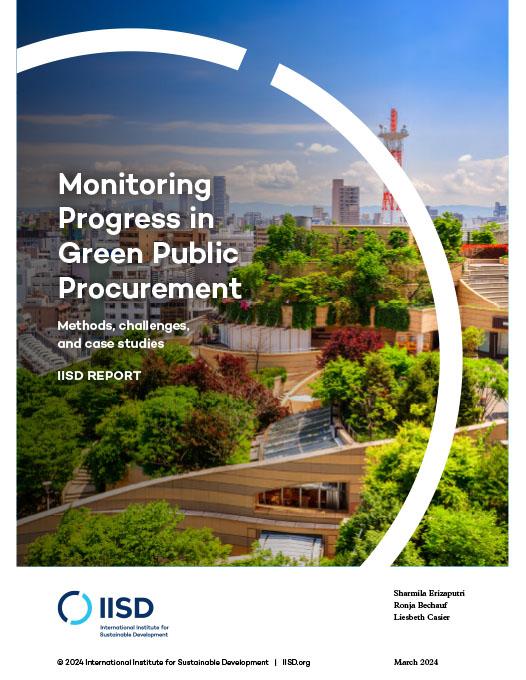
Public procurement is responsible for approximately 15% of worldwide greenhouse gas (GHG) emissions, according to recent research from the World Economic Forum. “Greening” public procurement is therefore a critical strategy to support the reduction of GHG emissions related to government activities. Effective Green Public Procurement (GPP) monitoring is key for countries to track progress toward their climate goals. We outline the importance of monitoring GPP and highlight the various methodologies, challenges and recommendations for improved monitoring practices.
9. Measures to Enhance Forest Conservation and Reduce Deforestation
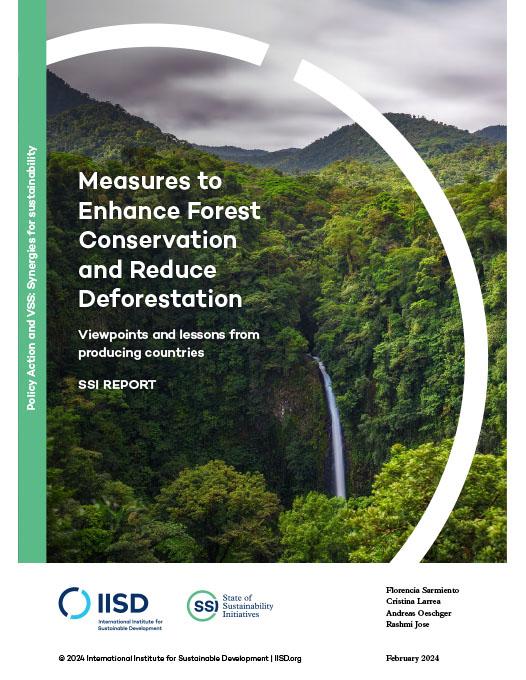
Forests sustain and protect us in a myriad of ways. They absorb carbon dioxide and provide us with oxygen, they harbour more than three quarters of terrestrial biodiversity, and they support the livelihoods of millions of people worldwide. But the world has lost 420 million hectares of forest since 1990. This report outlines and compares various policy measures that Costa Rica, Gabon, Indonesia, Peru, and Rwanda have put in place to address deforestation and explores the role of voluntary sustainability standards (VSSs) in complementing them.
10. Investment Facilitation for Development Agreement: A reader's guide
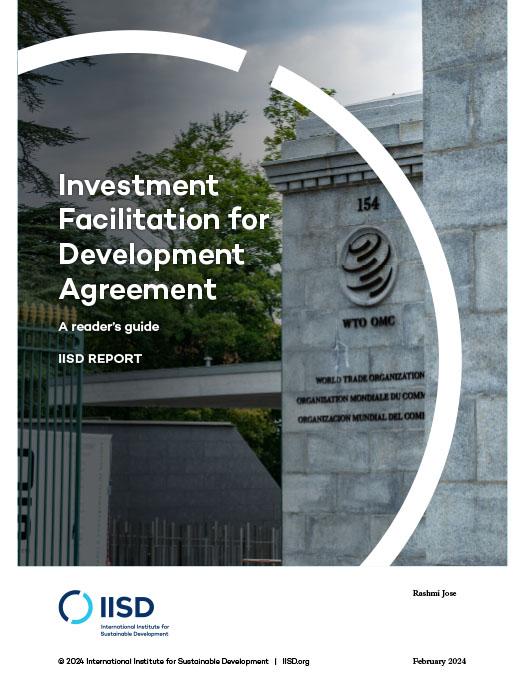
After three years of informal talks and three years of formal negotiations, a group of more than 115 WTO members announced a major milestone on July 6, 2023: the finalization of the legal text of a new global agreement on investment facilitation. This reader's guide provides an overview of the Investment Facilitation for Development Agreement. It describes the rules and legal provisions that have been agreed and succinctly explains what the disciplines require. It has been designed to provide all interested stakeholders with a short and clear summary of the treaty.
You might also be interested in
IISD's Best of 2024: Articles
As 2024 draws to a close, we revisit our most read IISD articles of the year.
Nine Wins for Sustainable Development in 2024
Looking back on 2024, let’s take a moment to pause and appreciate the positive milestones of the year. Join us in celebrating the small and big wins for global sustainability.
IISD's Best of 2023: Publications
As 2023 draws to a close, we revisit our most downloaded IISD publications of the year.
The Cost of Fossil Fuel Reliance
Government support for fossil fuels reached at least USD 1.5 trillion in 2023, new data shows.
